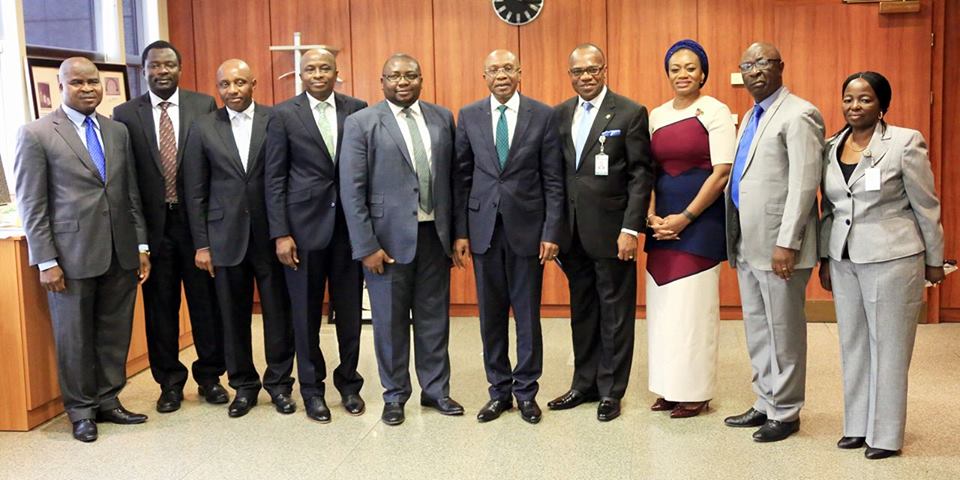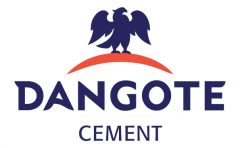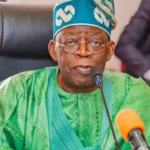
•Seeks Building Of Fiscal Buffer, Transparent Privatisation Of Idle Assets
Against most analysts’ expectation for a rate cut, the Central Bank of Nigeria (CBN) Monetary Policy Committee (MPC), rose from its 298th meeting on Friday and voted unanimously to retain its benchmark interest rate at 13.5%.
According to a communiqué issued at the end of the two-day, signed by the CBN Governor and chairman, Godwin Emefiele, the committee retained the Monetary Policy Rate at 13.5%; the asymmetric corridor of +200/-500 basis points around the MPR; the CRR at 22.5%; and the Liquidity Ratio at 30%.
Committee members noted that loosening the rates “would result in increased system liquidity and hence, heighten inflationary tendencies in the economy. In particular, the MPC was of the view that loosening would drive growth in consumer credit but without a corresponding adjustment in real sector output.
They were “also convinced that increased liquidity and interest rate moderation would result in exchange rate pressures as money supply rises,” following which it opted to hold to ensure a clear understanding of the quantum and timing of liquidity injections into the economy, before deciding on possible adjustments to the stance of monetary policy.
Members “particularly noted the growth in the size of industry loans from N15.4tr in June to N16.23tr in September 2019,” lauding the CBN’s recent directives for deposit money banks to increase their Loan-to-Deposit Ratio (LDR). The decision to hold rates, members argued, was necessary to appraise “effects of the suit of heterodox monetary policy to encourage credit delivery to the real sector, especially in the light of the subsisting implementation of the Loan- to-Deposit Ratio policy.”
Members applauded the Federal Government ongoing drive to raise Value Added Tax (VAT) by 50% from 5% to 7.5%, thereby improving “fiscal revenue to support expenditure and reduce the budget deficit as well as government borrowing when implemented.”
They, however, warned that this “was too little to close the gap in Government finances,” urging the government to urgently build “fiscal buffers by purposefully freeing-up redundant public assets through an efficient, effective and transparent privatization process.
“This would raise significant revenue for the government and resuscitate the redundant assets to generate employment and contribute effectively to national economic growth,” the committee offered, noting the instability in oil prices, its implications on accretion to external reserves and the persistent call on the government to build fiscal buffers.
While commending the progressive moderation in consumer prices, the committee urged the CBN to sustain its intervention in the real sector of the economy by reducing the output gap.
The MPC also noted improvements in the financial soundness indicators but called for sustained regulatory surveillance by the apex bank to ensure continued financial system stability.
“The Committee underscored the need to grow consumer, mortgage and corporate credit to drive aggregate demand and ensure a reduction in unemployment and increase in output growth.”
The MPC equally commended the introduction of the Global Standing Instruction (GSI) initiative aimed at de-risking credit in the industry by committing bank customers to repay their loans.
The MPC further noted the increased supply of microcredit to key Micro Small and Medium Enterprises (MSMEs) and efforts through the Nigeria Incentive-Based Risk Sharing System for Agricultural Lending (NIRSAL), among others, but “observed that the growth in credit to the private sector remained significantly low, relative to the absorptive capacity of the economy.
“The MPC further underscored the linkage between high unemployment and heightened insecurity, emphasizing the critical need for urgent steps towards more jobs and wealth creation in the country.
“As an interim solution, the committee called on government at all levels to ratchet up public works programmes aimed at easing the threat of rising unemployment in the country.”
The committee also “called on the National Assembly to exercise restraint from increasing the oil price budget benchmark to avoid budgetary overruns at the implementation stage of the budget. Projections from the oil futures market indicate that oil prices will remain tight around the budget oil price benchmark in the medium term,” the communiqué stressed.















